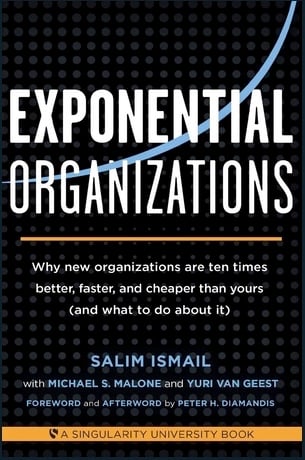Many companies today are opting for procurement to manage their marketing spend. But marketers and agencies have always been at odds when it comes to procurement. Understanding the role that procurement plays and how it impacts marketing is crucial to not only save on costs but to pave the way for better alignment in achieving the brand’s vision.
In this article, we look at how both sides can work together to ensure maximum value is derived from agency capabilities.
Insight: Trust, understanding, and a shared vision are helping marketing and procurement drive transparency, efficiency, and stronger relationships.
Data: Within business services, marketing spend is one of the major areas with currently low purchasing involvement (Bals & Hartmann)
What’s the step change: Marketing and procurement teams must learn to work together seamlessly to find real value in what both teams have to offer to the entire organisation.
While procurement teams are focused on cost, savings, and mitigating risk, marketers look for the right fit and the value they can get from an agency’s marketing capabilities.
With both having different objectives in mind, this often leads to problems and lack of synergy especially when reporting to the board. Procurement teams need to learn how to balance marketing goals with the value for money.
Here are key points to note when thinking about the relationship between procurement teams and marketing agencies:
Be More Value-Driven vs Cost-Driven
One of the common issues that marketing agencies have with procurement teams is their innate need to cut costs, oftentimes unknowingly sacrificing value in the process.
There is no focus at all on how to gain better value for money with the services being used since success is measured primarily on the right use of the marketing budget instead.
Rather than being too financially focused, marketing procurement must also have a quality focus according to agency capabilities, suitability, and the costs needed to achieve maximum value.
Procurement teams can do this by tracking marketing-return-on-investment (MROI) data and making use of scorecards that allow them to track efficiency according to marketing results.
Until marketing is seen as an investment and not a cost, this disconnect will continue and results will suffer. There should be greater focus on how to maximise marketing as an investment, instead of just minimising it as every ordinary cost.
Media Buying Is Not Always Aligned with Strategy
The idea of marketing procurement is fairly new for some organisations. For many years, marketers were left to agree on contract terms over lunch or through a friendly handshake.
But in today’s time, this is no longer appropriate. Smarter procurement is needed to better navigate a more fragmented media sector.
According to a recent report, many agencies are buying media that is not aligned with their clients’ strategies. Agencies also noted a lack of transparency in online media buying.
it is important for marketers to understand the different structures underpinning procurement across organisations and be aware of the problems that these can present such as unfair contracts.
This calls for a need for procurement teams to improve how they communicate with their agencies to ensure goals are aligned with brand strategy while at the same time securing better deals for their brands.
Confusion around Complex Structures
When PepsiCo scrapped its marketing procurement department and gave the purchasing power to its brand team, this brought a focus on the problems that this set up can bring while putting a question on the role of procurement in marketing.
PepsiCo pointed out the need for greater speed and efficiency as the main reason behind it.
But this comes as no surprise though when we think about suppliers having to deal with complicated company structures and different client stakeholders, which always results in delays.
Many agencies also point to slow-moving contract negotiations at the procurement stage for preventing clients and agencies from having strong relationships. Pitch processes can last for three to four months even when you’re the chosen candidate. This can lead to fatigue, and the original spark and excitement from the team can dissipate.
The Need to Work as One Team
In other instances, procurement teams rely too heavily on agencies rather than improving the efficiency of their processes such as the need for better communication.
It would work better for everyone if someone can work on the agency’s behalf in the client organisation as this can help identify when time and efforts are being wasted so as to focus on actionable solutions instead.
Finding the right synergy between procurement teams and marketing agencies is important for a better working relationship.
Accommodating the procurement team in more discussions and allowing them to shadow marketers will benefit everyone involved because being physically around when crucial discussions are done is important to understanding the bigger picture.
This way, the procurement team can do a better job at acting as a buffer between clients and agencies and help resolve issues when they arise so the marketing team can focus on the core goals.
By strengthening this relationship and fostering better communication between procurement teams and agencies, action plans are easier to implement and the process becomes more efficient as everyone is aligned.
Brands Continue to Take New Approaches
With the lack of best practices throughout the industry, many brands like Adidas are coming up with new procurement methods focused on smaller pitches and less-convoluted processes.
This allows them to implement their digital campaigns quickly while giving them the freedom to try out new platforms.
In the future, procurement teams and marketing agencies will need to focus on better flexibility according to the specific needs of every individual project.
The need to adapt to different agencies and briefs is crucial and should be something that procurement teams need to consider. With the freedom to adapt as necessary, brands are given the platform to do amazing work.
Tying It Together
In a period of constant transformation, organisations are looking for new ways to check the efficiency of their marketing budget.
Marketers need to make the right choices about what they buy, how they buy, and whom they work with.
Procurement teams need to have a holistic understanding of what capabilities are needed by marketing from their media agencies. Finding the right agency fit and the right partnership can make all the difference in maximising value.
But more than anything, marketing and procurement need to work seamlessly together with trust and an aligned vision to ensure business goals are achieved from the get-go up to the successful delivery of project outcomes.
















